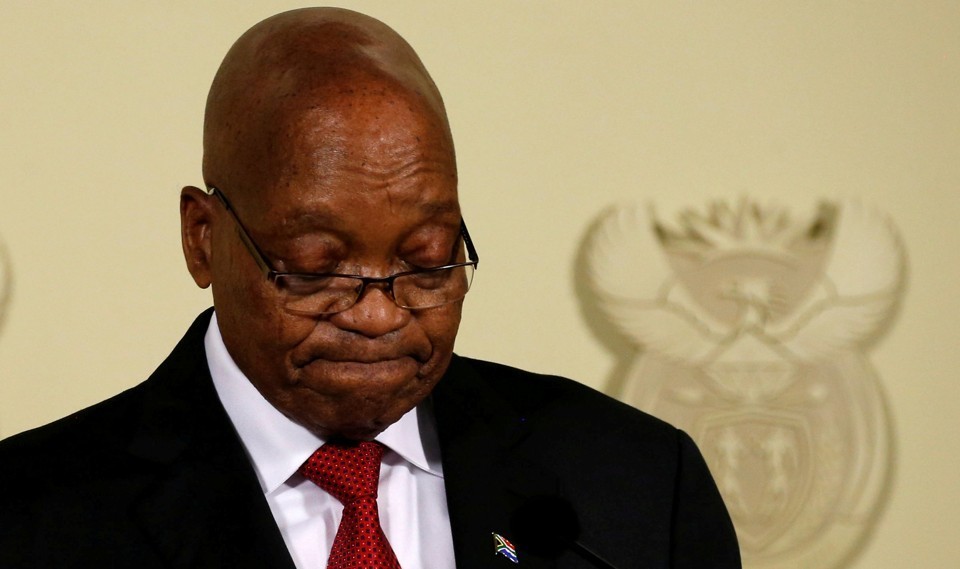After much prodding and cajoling, recalcitrant former leader of South Africa, Mr. Jacob Zuma finally bowed out of the political scene.
Up until Wednesday night, when he threw in the towel, Mr. Zuma had resisted all efforts by his party, the African National Congress, to get him to relinquish power.
Even a vote of no confidence taken by the party wasn’t enough to compel Mr. Zuma to take a bow and walk off into the sunset. He stubbornly clung on to power and became more intransigent.
But the ANC didn’t relent. It kept on the pressure. Ultimately, Mr. Zuma saw the writing on the wall when the South African police raided the home of his chief enabler and partner in crime, one of the Gupta brothers, the wealthy Indian family that took corruption in South Africa to a whole different level.
The drama in South Africa starring Mr. Zuma, was raw, unadulterated evidence of the abject failure of African leaders to do the right thing by their people.
It was precisely what former President John Kufour had alluded to in a speech last week when he bluntly stated that Africa’s myria challenges are due to poor leadership.
I shed no tears for Mr. Zuma; his political demise was long overdue. Taken at face value, Mr. Zuma’s resignation is a huge relief for the suffering masses of South Africa, who by all accounts wanted him gone anyway. He had the golden opportunity to transform South Africa and lead it to greatness.
Instead, under his watch, the South African economy shrank, unemployment shot up, and violent crime soared.
In addition, Mr. Zuma deliberately fanned ethnic tensions, threatening on several occasions to unleash the Zulu battalions, crowds of his tribesmen to cause mayhem and violence. and he became entangled in numerous corruption scandals.
In the long run, he drove South Africa’s reputation into the ground. In fact, his years in office were disastrous for his country. He should have gone quietly;
Nine years ago, when he craftily engineered the removal of Mr. Thabo Mbeki as president, and then proceeded to occupy the highest office in the land, many South Africans had high hopes for him.
After all, here was a man with enviable revolutionary credentials who had worked his way up from the ranks of the ANC to become president of his country, Africa’s biggest economy.
Before becoming president, Mr. Zuma was known as a peacemaker — a man who listened carefully and was always prepared to craft a solution guided by his instincts. But as a political leader, Mr. Zuma was a disappointing failure.
In office, he got carried away with the trappings of power and became increasingly corrupt. As proof, critics point to the palatial home he built in his village at the expense of South African tax payers and was inseparable from the Guptas and a group of corrupt ANC members.
His brazeness brought unnecessary tension and anxiety into the South African political process. All of these ultimately spelled Zuma’s doom. Mr. Zuma’s forced exit from the South African political scene gets rid of a very divisive figure.
And, ironically, it also gives his successor and political nemesis, Mr Cyril Rhamaposa, the opportunity to bring his considerable business experience to bear on the South African economy. That, in itself, is a huge welcome change.



Comments are closed, but trackbacks and pingbacks are open.